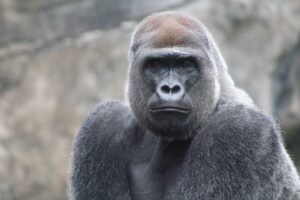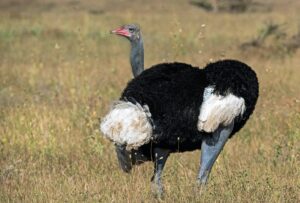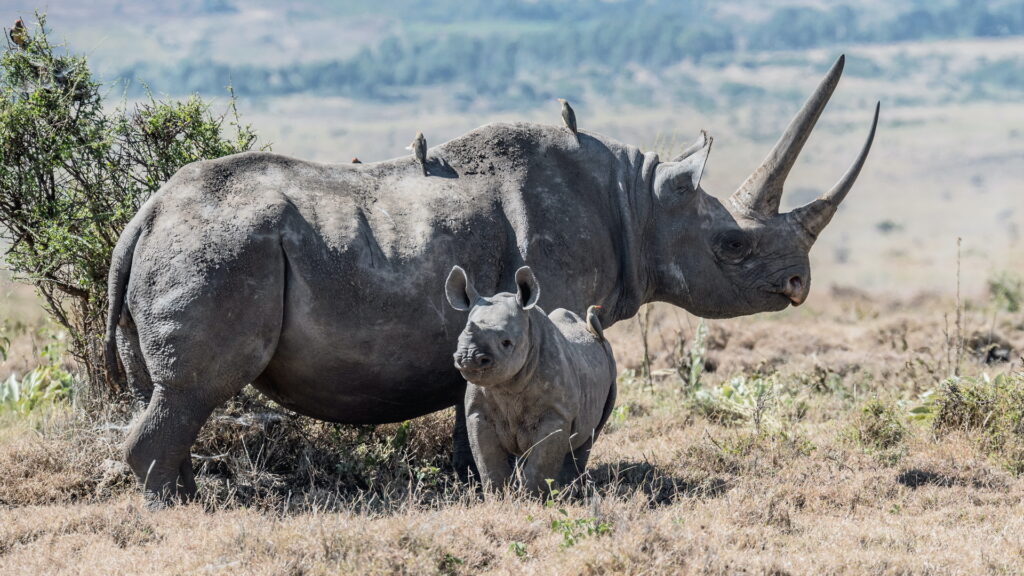Poaching animals is the illegal hunting or capturing of wild animals. It was once practiced by impoverished people looking for a way to feed their families, who hunted animals of all kinds on private (typically owned by the nobility) land. Now poaching refers to a major problem in Africa and other countries that threatens the survival of many species, including iconic animals like:
- Black rhinos
- African elephants
- Gorillas
- And North African Ostrich.
Millions of animals have suffered, with thousands of species around the world being killed or captured and removed from their native habitats. It’s not just limited to the large iconic animals either. Certain lizards and monkeys are also at risk for poaching.

What Is Poaching?
Poaching can take many forms in many countries, including:
- The illegal trade in animal parts such as ivory and rhino horn from endangered species.
- Hunting for bushmeat as the meat from apes, snakes, and other bush animals can be considered “delicacies.”
- The illegal trade in live exotic animals for the pet trade or for use in entertainment, especially smaller animals, birds, reptiles, and primates.
- Hunting off-season or without a license, often for “entertainment.”
- Removal of animals, including lions, elephants, wolves, coyotes, and other predators to protect crops or livestock.
Often, poachers are looking only for the “trophies,” such as the horns or antlers, to sell on the black market. They then leave the rest of the animal and the meat it could provide to rot in the wilds.
Despite countries banding together and creating new laws to protect these precious animals, people who are desperate and destitute as well as thieves looking for a big payday have demolished animal populations to extinction or the brink of it.
One of the main drivers of poaching in Africa is the demand for animal products, particularly in Asia, where elephant ivory and rhino horn are highly valued for their use in traditional medicine and as status symbols. Pangolins, for example, are harvested and have their scales ground down into a powder and sold for alleged “healing” properties. However, there are many other sources of keratin, the material that makes up their scales, including human hair and nails. What’s more, the scales have no proven medicinal value.
Make no mistake, though, this illegal practice involves people from many countries, including the United States. The illegal trade in these products is lucrative worldwide, and organized criminal networks are often involved in poaching and smuggling of these products.

More Problems with Poaching
In addition to risking the extinction of these magnificent animals, poaching also has significant impacts on the ecosystems and economies of African countries. The loss of key species can disrupt the balance of ecosystems and lead to declines in other species that depend on them.
Poaching also undermines the efforts of conservation organizations and governments to protect and preserve wildlife. Plus, it can have profound negative impacts on the tourism industry, which is an important source of income for many people in Africa.
Poaching is also tragic for people. In Africa, nearly 600 rangers have been gunned down in the line of duty, protecting the animals in their care. Poaching may also be used to fund armed militia groups that then use the money for other illegal schemes that risk the lives of people in the surrounding communities.
Another risk of poaching is the increased risk of spreading disease, such as Ebola and SARS and other potentially deadly pathogens.

Hunting vs. Poaching
Many people around the world depend on hunting for food, especially those in indigenous communities. These communities typically do so with abundant respect for the land, the animal, and the gift of food they receive. They also use as much of the animal as possible. Hunters hunt only within the laws and rules during specific seasons to conserve the land and the animals.
Unlike poachers, hunters help balance animal populations and do their best to give back to the people and land to ensure the animal populations thrive, so they can continue to hunt sustainably. They also only use the weapons allowed and avoid hurting any vulnerable or endangered species. Finally, they pay for licenses that help support local conservation efforts.
Efforts to Put an End to Poaching
Poaching is against the law, and it also threatens the balance of our environment, biodiversity, and future generations.
In recent years, tireless efforts have been made to address the problem of poaching in Africa. For instance, governments have banded together to reduce demand for illegal animal products, strengthen law enforcement, and increase awareness about the impacts of poaching. Some countries have implemented stricter laws and penalties for poaching. Many of the poachers are impoverished local people, so the more severe penalties are reserved for the traders, militia, and kingpins known for trafficking and profiting from the heartbreaking and detrimental practice.
Many countries and nonprofit organizations provide on-the-ground animal protection and use economic incentives, such as increased tourism from safaris, to provide better opportunities for local communities. This allows them to earn a better, more sustainable living than the small profits they may receive from poaching.
Conservation organizations have worked to develop strategies to protect wildlife and support local communities. They also work hard to educate the public on the devastating effects of poaching to decrease demand. After all, if no one is buying, then the practice will die on its own.
Unfortunately, though, the problem of poaching remains a significant challenge, and continued efforts are needed to address it.

